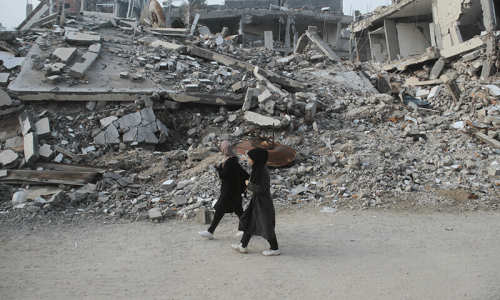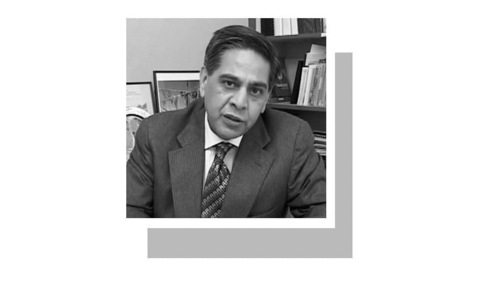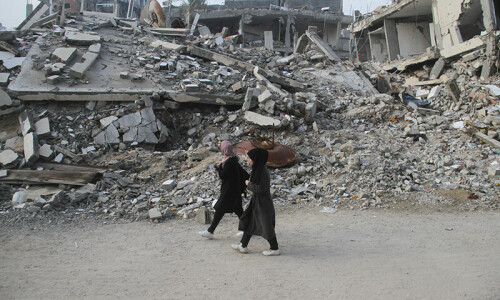
In the Indian Subcontinent, including Pakistan, the history of creative writing in English does not go back more than a century and a quarter. After the arrival of the British, the elite and middle class Indians were first trained into legalese and officialese. Later on, after being exposed to English literature and other world literatures through English language teaching, besides native students sent to the newly established English-medium schools and colleges across British India or in mainland Britain itself, a new linguistic and emotional sensibility started taking shape.
While Bengal must have preceded the rest of the provinces due to its earlier colonisation under the East India Company, the mentionable Anglophone literature in India, mostly in prose, started emerging in the late 19th century. It was followed by the first collection of poetry, published by an Indian poet in the early 20th century.
The desire among early Subcontinental writers of English fiction and poetry was to master the colonial master’s language in the same way that the master employed it. Not only that, there was a critical colonial lens at the master’s end to examine the work produced in the colonies, and the inhabitants of these colonies also looked at themselves as smaller in stature if they were not able to speak and write, even feel and behave, as the native English speakers did.
This remained the pattern until the time that poets Nissim Ezekiel (1924-2004) in Mumbai and Taufiq Rafat (1927-1998), first in Sialkot and then in Lahore, appeared on the scene. Ezekiel confidently introduced the plural Indian and Mumbaikar concerns and idiom in his pioneering verse. Rafat brought in the Indus basin and the Punjab, our metaphors, similes and the habitat, into Pakistani English verse.
The novel from Sehbai proves once again that, for him, art is a continuum with no beginning and no end. Art keeps growing and keeps pushing the frontiers of the status quo, supposedly the normal existence. Art for Sehbai is like the universe, ever-expanding and never complete.
In fiction, it was Ahmed Ali’s Twilight in Delhi, published in 1940, and Attia Hosein’s Sunlight on a Broken Column, published in 1961, that paved the way for writing about our own experiences of separation and belonging, diminishing culture and history, colonialism leading to the partition of the Subcontinent, and the issues of gender and class that played along larger events in our history.
What Ezekiel, Rafat, Ali and Hosein succeeded in doing was that they turned the language being used into something that is incidental to the depth and reality of art. They treated the English language on their own terms. They were indifferent to seeking any approval from or any canonisation by the masters or the ex-masters. At the same time, they turned English into one of the many South Asian languages we use for creative expression. They were among the first few who nativised English as one of our languages, which we speak and write in on our own terms.
In the last 70-odd years, English became one of the key languages for both intellectual and public discourse in India. There were multiple factors at play there, including a much larger linguistic diversity compared to Pakistan and the divergence between the north and the south.
In Pakistan, English is one of the key languages for intellectual discourse and official purposes of the state. But Urdu and a few other major languages could not be replaced by English for public discourse. Subsequently, the Anglophone literature produced in India has been of considerable merit and far more in quantity compared to Pakistan.
Nevertheless, Pakistan has produced some outstanding poets and fiction writers over the past many decades. Sarmad Sehbai, an already celebrated Urdu poet and playwright, besides being a television and film director, has joined the ranks of brilliant English fiction writers from Pakistan. His debut novel in English, titled The Blessed Curse, has been published by Mawenzi House Publishers in Canada recently.
The novel from Sehbai proves once again that, for him, art is a continuum with no beginning and no end. Art keeps growing and keeps pushing the frontiers of the status quo, supposedly the normal existence. Art for Sehbai is like the universe, ever-expanding and never complete.
Sehbai knows well that, in art, being normal is to be stale, whereas being subversive is sublime. The Blessed Curse is a story of charms and deception, truths hidden behind lies, power and pelf, soulless religiosity, unbridled ambition, the meaninglessness of ordinary lives and the meaningfulness of basic emotions — sexual desire, political domination and personal aggrandisement.
Sehbai’s novel is essentially a ruthless social and political satire. He candidly exposes not just the principal contradictions of Pakistan at the macro level but also the concerns and issues that an ordinary person faces. He does not spare the politician, the military commander, the religious leader, the business tycoon, the sycophants of various kinds, or even the desire to be subjugated, found among common citizens. For me, the hero that emerges from the novel is the virgin prostitute, Nussu.
As a minor reader of Pakistani Anglophone fiction, my view is that Jamil Ahmed made me understand about the happenings along the Durand Line, through his The Wandering Falcon. Mushir Anwar’s A Piece of the Moon helped me decipher the Partition of India on the basis of the Radcliffe line. Sehbai contributes to my understanding of how Pakistan functions between the Durand and the Radcliffe lines.
In terms of language, Sehbai’s novel is a contemporary Pakistani Punjabi canvas in an English frame.
The columnist is a poet and essayist. His latest collections of verse are Hairaa’n Sar-i-Bazaar and No Fortunes to Tell
Published in Dawn, Books & Authors, December 15th, 2024

















































Dear visitor, the comments section is undergoing an overhaul and will return soon.